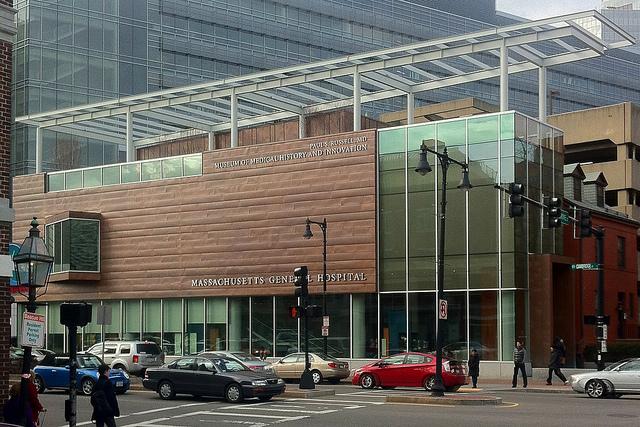By Jose Castillo, political columnist
About two and a half weeks ago, I was admitted to Massachusetts General Hospital for injuries I had sustained on the day of the Women’s March. My injuries weren’t related; the march had long been over by then. I had fallen off my bike while both speeding down Tremont Street and trying to change the song on my Pandora Radio app (no way I was gonna let Chainsmokers ruin my beautiful Saturday). In the moments right after my face slammed into the pavement and right before my shoulder could pop out of its socket, all I could think was “Oh God, just what I needed, another bill!”
Anything from a break to a sprain can mean costly doctor visits, especially in the U.S., where citizens pay more for healthcare than any other high-income nation. “Lay-a-way is a thing at hospitals, right?” I thought as my bike, which had slipped from underneath me, wrapped around my legs, swung around my back and landed directly on my head.
As I slid down the inclined road, all I could think of was who to blame for my injuries, my impending bills and the failure of the American health care system. Maybe if I had not been wearing sunglasses at night, I could have avoided hitting that curb. I thought of blaming myself and my own stupidity, but then I remembered I was an American—I’ll blame poor people and immigrants before I take responsibility for my own actions.
Maybe I could blame former President Barack Obama for all of this. His Affordable Care Act (ACA) has been dubbed a failure by many, including our current president. Under Obamacare, family premiums rose 20 percent from 2011 to 2016, and high-deductible plans now flood the market. However, before the ACA was enacted in 2010, premiums had risen 31 percent from 2006 to 2011, and 63 percent five years before that. The ACA took these premium spikes into account, with subsidies to help pay for these increases included in the law. While the plan itself has problems, the ACA has dropped the uninsured rate to 9.1 percent, and 22 million Americans have benefited from it.
“Obviously, the repeal of Obamacare without a strong plan to replace it would lead to bigger health spending for all of us,” I thought as I fell on my arm incorrectly, bending it the wrong way.
Maybe I could blame liberals in general, as their constant push for a national health care system prevents us from perfecting a market-based system where only the best plans survive. However, has universal health care, or at least a government-subsidized health care plan, always been a partisan issue? While Germany and other European countries took the first steps towards national health care as early as 1883, the first health care plan to be proposed in the United States came in 1901 from President Theodore Roosevelt.
The push for civil rights in the 1960s and 70s lead to the creation of Medicare and Medicaid, signed into law by President Lyndon B. Johnson. Three proposals in the 1970s advocated for universal health insurance, one proposed by Democratic Representative Marth Griffiths of Michigan, another by Republican Senator Jacob Javits—who wanted to expand Medicare to all—and the final, a bipartisan bill presented by Massachusetts Senator Ted Kennedy.
During the 1970s, President Richard Nixon proposed two health care plans that would have gone farther than Obamacare does now, requiring all employers to provide basic health insurance, regulate the benefits insurance companies could withhold and expand Medicaid to more than those who qualified under previous legislation.
Both Sen. Kennedy’s push for universal health care and Nixon’s health care reform failed due to disagreements on how to carry them out. However, either plan would give a heart attack to those demanding the repeal of Obamacare. By repealing the Affordable Care Act, the president, as well as members of Congress, would be impeding on the already slow progress we’ve made as a nation when it comes to providing health care for all—a task every developed nation should be working towards. My eyes are still swollen shut from my fall, and even I can see that.
Photo courtesy Robert Gray, Creative Commons














